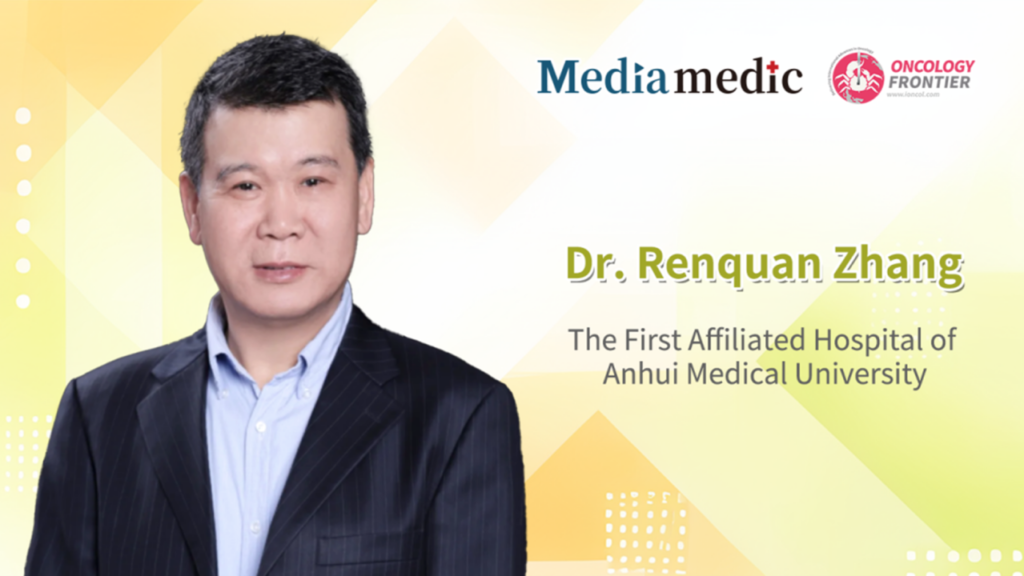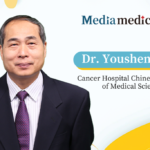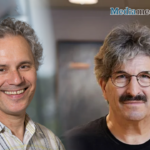
Editor’s Note: From September 26 to 28, 2024, the China Anti-Cancer Association (CACA) and the CACA Integrative Esophageal Cancer Committee hosted the 2024 CACA Integrative Esophageal Cancer Academic Conference in Hefei. This prestigious event gathered leading experts in the field of esophageal cancer from China and abroad. The topics ranged from cancer prevention, early diagnosis and treatment, standardized therapy, and integrated treatment approaches. Oncology Frontier had the opportunity to interview Dr. Renquan Zhang from The First Affiliated Hospital of Anhui Medical University (AMU) to discuss advancements in the diagnosis and treatment of esophageal cancer. Below is a summary of the interview for our readers.Oncology Frontier: Esophageal cancer is highly prevalent in China, requiring a multidisciplinary approach for effective diagnosis and treatment. Could you share your thoughts on how hospitals can better establish and improve multidisciplinary consultation mechanisms to enhance the outcomes for esophageal cancer patients?
Dr. Renquan Zhang: Esophageal cancer is one of the most common malignant tumors in China, accounting for more than half of the global cases. Besides its high incidence, esophageal cancer presents significant heterogeneity, and overall treatment outcomes have been less than ideal. Therefore, a multidisciplinary treatment (MDT) approach is crucial. Our hospital, the First Affiliated Hospital of AMU, began exploring the MDT model over a decade ago. Initially, it was mainly for inpatients, where multidisciplinary consultations helped clarify diagnoses and create individualized treatment plans, significantly improving precision and outcomes. As the MDT model has evolved, we’ve expanded it to outpatient settings, refined MDT procedures, and enhanced multidisciplinary collaboration, promoting comprehensive management for esophageal cancer patients. Our hospital is actively transitioning towards a disease-centered model of diagnosis and treatment, aiming to provide higher-level services with personalized treatment plans.
Oncology Frontier: You have successfully used 3D thoracoabdominal laparoscopic techniques to perform combined radical esophagectomy for many patients. Although 3D technology has demonstrated clear advantages in minimally invasive surgery, its high cost limits widespread adoption. Could you discuss the key aspects and challenges of applying this technology?
Dr. Renquan Zhang: Compared to traditional 2D surgery, 3D thoracoabdominal laparoscopy provides a more realistic surgical field with high-definition, three-dimensional images, greatly improving surgical precision. It helps surgeons better identify complex anatomical structures, enhances the accuracy of lymph node dissection, and minimizes damage to surrounding tissues. However, there are challenges in promoting this technology. First, the high cost of 3D equipment restricts its widespread use in many hospitals. But as technology advances, the cost is expected to decrease, allowing 3D laparoscopy to benefit more patients. Second, the application of 3D technology demands higher skills from surgeons. Surgeons must not only master traditional thoracoabdominal laparoscopy but also adapt to performing surgeries in a three-dimensional field. Moreover, the development of technology is rapid. For example, the transition from using 3D glasses to performing naked-eye 3D surgery presents ongoing learning and adaptation challenges for surgeons. As technology and equipment continue to improve, 3D laparoscopy will further drive advancements in minimally invasive surgery, offering better treatment options for patients.
Oncology Frontier: You mentioned that 3D technology requires higher proficiency from surgeons. What suggestions do you have for surgeons learning and applying this technology?
Dr. Renquan Zhang: Transitioning from traditional thoracoabdominal laparoscopy to 3D technology is generally a smoother learning curve, but it still requires a solid foundation in minimally invasive surgery. Mastering 3D laparoscopy is an experience-based process, where practical application is key. Usually, after accumulating experience with around 20 to 30 cases, surgeons can become proficient in using 3D technology. Surgeons should focus on continuous practice, refining their skills, and improving the precision and effectiveness of their surgeries.
Oncology Frontier: You have extensive experience in the surgical treatment and postoperative management of elderly and critically ill patients with esophageal cancer. Could you share your insights on the key considerations and challenges when treating these special populations?
Dr. Renquan Zhang: With increased public health awareness and advancements in medical technology, China’s average life expectancy has risen, leading to a growing number of elderly and critically ill esophageal cancer patients. This poses additional challenges for clinical management. We’ve encountered patients as old as 97 years, who often have deteriorating organ function and multiple comorbidities. Treatment for these patients must be comprehensive, covering the preoperative, intraoperative, and postoperative phases.
Preoperative: Detailed preoperative assessments are critical, especially in evaluating and enhancing cardiopulmonary function. For elderly patients, lifestyle habits, such as smoking and alcohol use, need to be strictly controlled. For instance, patients should stop smoking at least two weeks before surgery and engage in cardiopulmonary function exercises to improve their physical condition. Psychological support is equally important. Preoperative counseling helps alleviate fear of surgery and boosts patients’ confidence in overcoming the disease, positively influencing postoperative recovery.
Intraoperative: During surgery, particularly for elderly patients, close collaboration with anesthesiologists is crucial. Preoperative contingency plans are essential to manage any intraoperative complications, ensuring the surgery proceeds smoothly and unexpected issues are promptly addressed.
Postoperative: Postoperative management for elderly and critically ill esophageal cancer patients must be meticulous, often requiring extended monitoring periods. Alongside monitoring, we need to create individualized exercise plans to aid in cardiopulmonary and respiratory recovery. Postoperative fluid management is also vital, especially ensuring adequate protein intake in the early stages, while carefully controlling the type and speed of infusion to prevent adverse reactions.
Dr. Renquan Zhang
- Chief Physician, Master’s and Doctoral Supervisor
- Director, Department of General Thoracic Surgery, First Affiliated Hospital of Anhui Medical University
- Member, Esophageal Disease Group, Chinese Society for Thoracic and Cardiovascular Surgery
- Member, Chinese Medical Doctor Association Thoracic Surgery Committee
- Member, Chinese Society for Diseases of the Esophagus (CSDE)
- Standing Member, World Chinese Society for Thoracic Surgery
- Standing Member, Esophageal Cancer Committee, China Anti-Cancer Association
- Member, Thoracic Surgery Committee, China International Exchange and Promotive Association for Medical and Health Care
- Committee Member, Esophageal Cancer Quality Control Expert Committee, National Cancer Center
- Director, Thoracic Surgery Quality Control Center, Anhui Province
- Academic Leader, Anhui Province’s Sixth Five-Year Plan
- Recipient of the “Jianghuai Famous Doctor” Award in Anhui Province
- Chair, Thoracic Surgery Branch, Anhui Medical Association
- Vice Chair, Thoracic Surgery Committee, Anhui Medical Doctor Association
- Expert, Comprehensive Tumor Prevention and Early Diagnosis Program for Digestive Tract Tumors


